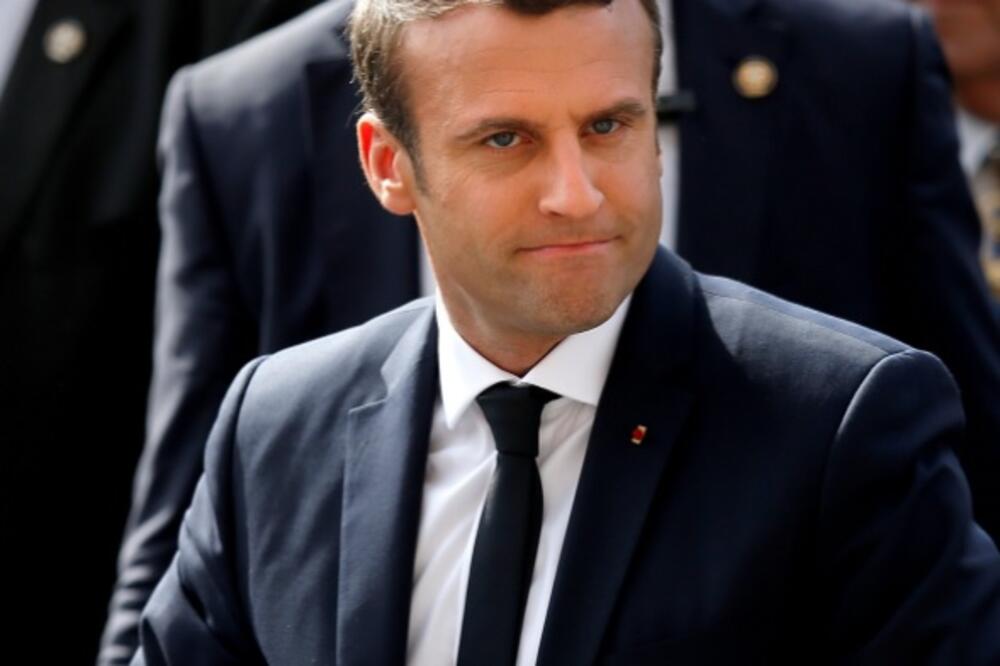Emmanuel Macron's landslide victory over Marine Le Pen in the second round of the French presidential election is a huge success for liberal Europe. But the battle was won, but not the war. The very idea that one in three French people could vote for the National Front (NF) was unthinkable just a few years ago.
Commentators have attached the label "populism" to the demagogic politics that have swept Europe (and a significant part of the rest of the world). But apart from the raw, cheap style characteristic of all populists, what do these movements have in common? The Spanish Podemos and the Greek Syriza are on the left wing. The French NF, the Dutch Freedom Party and the German Alternative for Germany (AfD) - on the right. Bepe Grillo, the leader of the Italian Five Star Movement, says he is neither a leftist nor a rightist.
However, they all deal with the same topics: economic nationalism, social protection, anti-European sentiment, anti-globalization, hostility not only to the political establishment but also to politics in general.
To understand what this may mean for the evolution of European politics, we need to look back at the history of fascism. Benito Mussolini, who is the progenitor of Italian fascism in 1919, began as a socialist-revolutionary. And in Germany, as we remember, the letter "Nazi" was an abbreviated variant of the name "National Socialist Workers' Party of Germany".
In the beginning, fascism was a National Socialist, anti-capitalist movement. Later, he narrowed the direction of the attack on liberal capitalism, above all on "international finance". And soon slipped into anti-Semitism. German social democrat August Bebel called it "socialism of fools". European fascism collapsed after the defeat of Germany in 1945, but its less aggressive forms persisted in other countries, for example in Argentina with its Peronism.
Judging by the social base of interwar fascism, it is reasonable to see it as a right-wing party. At that time, the working class strongly supported the left parties. There was only one political space left for fascism - the petty bourgeoisie: shop owners, petty businessmen, low-ranking officials.
However, today the social base for the left has disappeared. The classical working class has disappeared: social democratic parties and trade unions have turned into their own shadows. This means that left-wing populists inevitably have to compete with the far-right for support among the same population groups that turned to fascism in the interwar period: young unemployed men, "ordinary people" who feel threatened by the "oligarchy" of bankers, global supply chains, corrupt politicians, distant EU bureaucrats and, in general, from "jabolebaroš" of all kinds. The target of contemporary populists, of all political colors, is more and more often not only the same potential supporters, but also the same enemies.
How big is the space for the further growth of populism and which type of it - socialist or fascist - will succeed in attracting voters' votes?
The first part of the question was answered by former US President Bill Clinton during the 1992 election campaign: "It's all about the economy, stupid." Among the world's major economic centers, the EU has been the slowest to recover from the 2008 crisis. In France, unemployment is 10%. Youth unemployment there reaches approximately 24%, and in Italy 34%. This creates fertile ground for them to be recruited by both leftists and rightists. We cannot call Macron an inflexible budget hawk, but he still wants to lower France's budget deficit from 3,4% to 3% of GDP, in accordance with the ceiling set by the EU's Stability and Growth Pact. 120.000 jobs in the state sector were cut. He wants to simultaneously boost economic growth through a 50 billion euro ($55 billion) stimulus package and expand social protection.
To succeed in the search for squaring the circle, Macron needs economic growth, and in order to achieve it, he is counting on the implementation of reforms in the supply of the market. Macron plans to lower the corporate tax from 33% to 25% and exclude financial investments from the property tax. A fierce critic of protectionism, he will push for the EU-Canada Economic Agreement (CETA) and the Transatlantic Trade and Investment Partnership with the US. His support for the El Homri law, which simplifies the procedure for dismissing workers, and also his opposition to the idea of a 35-hour work week, testify to his intention to increase the "flexibility" of the French labor market.
Regardless of talk of a "green economy" and calls for a common European investment program, Macron's agenda is neoliberal as a whole. In essence, he hopes that his program, if implemented at the EU level, will enable the rise not only of the French economy but also of all "European ships".
And in fact, it is more likely that similar reforms, giving chances to populists, will sink all those boats. So then, which variant of populism will be able to take advantage of the given chance?
Economist Deni Rodrik dealt with the idea of populism. He claims that democracy, national sovereignty and global economic integration are mutually incompatible. It is necessary to sacrifice at least one of these elements. And since many voters in Europe feel that they have suffered because of globalization, populist parties, which aggressively put the nation above everything else, have an advantage over their rivals. From that point of view, Macron turned out to be the most ideal candidate against whom Marine Le Pen could lose. He is the embodiment of the globalist elite. He is too soft on immigration issues. And if it is assumed that his new political party cannot win a majority in the French parliamentary elections in June, his government will need the support of the traditional parties. And over the next five years, establishment figures may become synonymous with failed politics and turn into ideal targets for Le Pen and the NF in the 2022 presidential election.
Yes, of course, left-wing programs also have support in France. About 20% of voters voted for ultra-leftist populist Jean-Luc Mélenchon in the first round of the presidential election. And before the second round, one of the most striking hashtags on Twitter read #NiPatronNiPatrie (Neither Patron, Nor Homeland), expressing the dissatisfaction of many voters at having to choose between neoliberalism and nationalism.
Now it is the task of the left to focus its attention on the truly problematic aspects of global economic integration (financialization, advantage of capital over labor, creditor over debtor, boss over worker), without slipping into reactionary politics.
The author is Emeritus Professor of Political Economy at the University of Warwick, a fellow of the British Academy of History and Economics and a member of the British House of Lords.
Copyright: Project Syndicate, 2017.
Bonus video:





